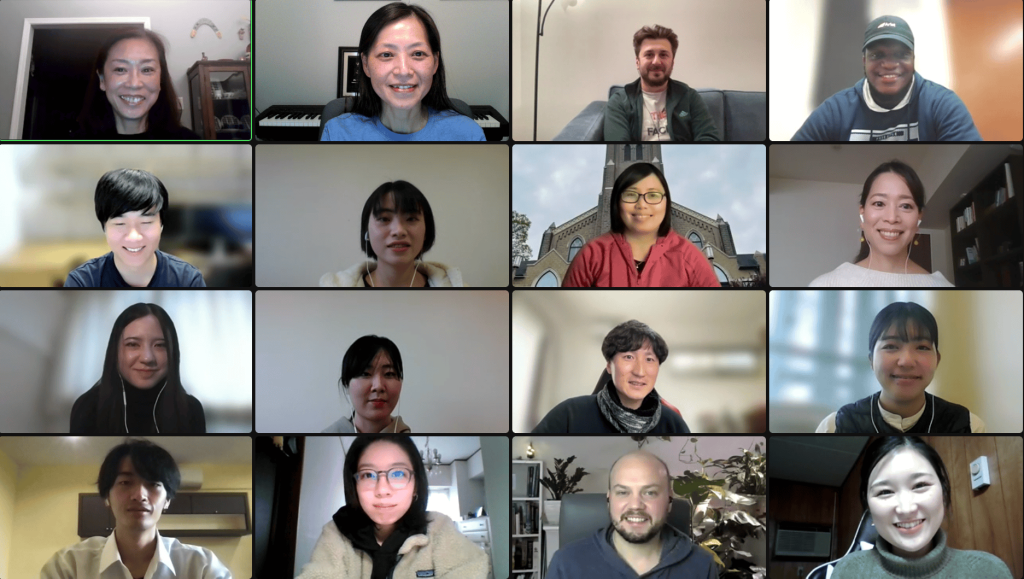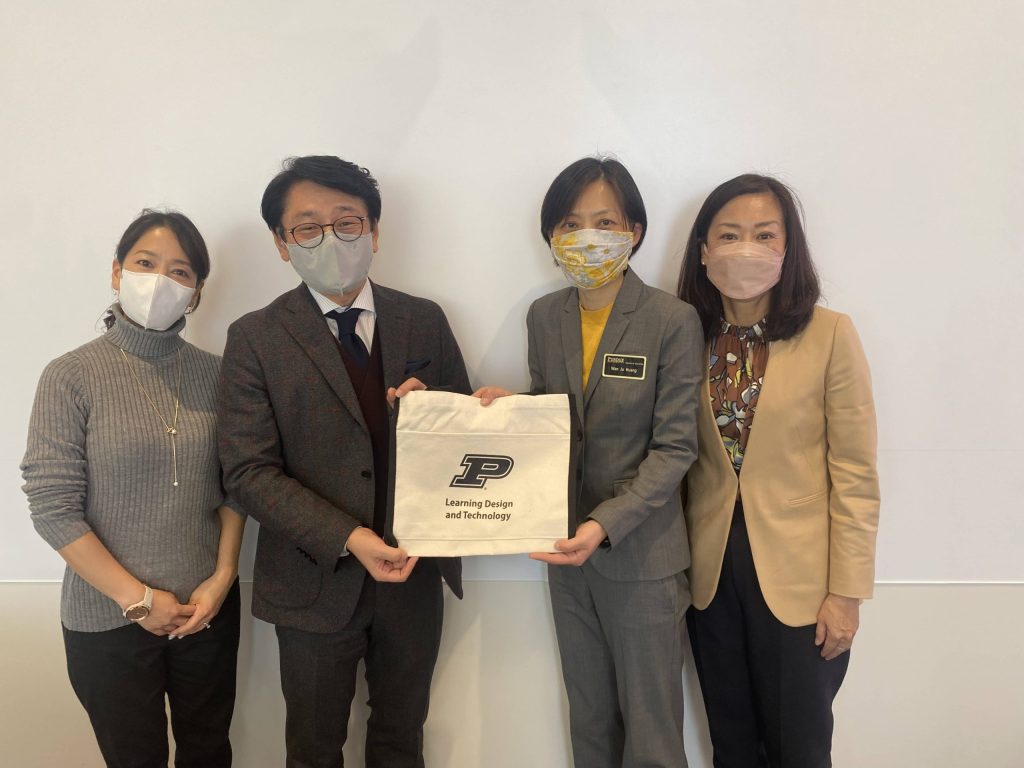Virtual study abroad pilot program for Purdue, Japanese Education students
Two College of Education professors piloted a virtual study abroad program last semester with Education students from Purdue and two universities in Japan. The students used learning and design technology principles to create three videos to educate K-12 students about the United Nations’ 17 Sustainable Development Goals (SDGs).

During the fall semester of 2022, Yukiko Maeda, professor of educational psychology and research methodology, and Wanju Huang, clinical assistant professor of learning design and technology, promoted teamwork between the three universities to give learning design challenges in a cross-cultural setting.
Students from Purdue University, Nagasaki University and Kyoai Gakuen University participated in “Intercultural Learning Through A Design Challenge”, which included a diverse group of seven nationalities of six Purdue students and six Japanese students. The seven-week virtual exchange program aimed to enhance students’ intercultural competency, provided students with a team environment to solve a design challenge, and enhanced their educational multimedia design knowledge and skills.
Maeda and Huang envisioned using the Purdue students’ strengths in technology and video along with the Japanese students’ strengths in targeting audiences and communicating with elementary school students.
The virtual study abroad program involved three teams of Education students. Collaborating via Google Chat, each team chose one idea from among the SDGs to develop into a video for a final project.
“The target audience was Japanese elementary school students and I spent a lot of time thinking about the content so that the message would be conveyed clearly to these precious children,” said Maki Tsuruyama of Nagasaki University. “With active learning in mind, we made sure that what the children learned from the video was not limited to the video, and that they were able to further investigate the content on their own.”
“As a result of becoming aware of UN initiatives on social issues, I developed various ideas that can be incorporated into our curricula or various educational activities, designs, events,” said Samet Baydar, a Purdue Education graduate student from Turkey. “Clear communication is an essential component of teamwork.”
Besides the cross-cultural challenges, the students had to contend with the 14-hour time zone difference in their communications.
“This helped them to evolve and grow their relationship,” Huang explained. “The students went beyond what we expected.”
The program promoted leadership, diversity, cultures, and learning design principles. It went so well that Maeda and Huang want to run it again in 2024, after promoting it this year.
“It is not an easy task to coordinate an international project which involved participants with diverse cultural backgrounds,” said Weijian Yan, a Purdue Education graduate student from China. “The professors created a student-centered, constructivist approach and gave students more autonomy in the learning process, motivating their interest in learning and collaborating with their peers. They took students’ skills, language levels, and personalities into account to ensure there was a good balance in each group.”

Purdue’s recently launched Institute for a Sustainable Future (ISF) will house the videos on their YouTube channel and they will also be on the College of Education’s YouTube platform. A website is planned to showcase the program and the students’ videos. ISF is also planning to feature the students as part of a graduate student panel on climate change and sustainability education and outreach.
“As we had group discussions every week, even though we spoke different languages, we tried our best to understand each other and listen to what the other person wanted to say,” said Tsuruyama Maki of Nagasaki University.
“I’m glad that I was able to take on the challenge of things that I thought were difficult – with help, and that I was able to make a better video by giving my opinion on my specialty of communicating to children in an easy-to-understand manner,” said Chinami Hirabayashi from Nagasaki University. “It was a very good experience.”
“This program taught me to rely on others and to delegate, instead of trying to accomplish everything by myself,” said Alisa Tomaru of Kyoai Gakuen University.
“This experience has provided me with new insights about working in a culturally diverse team while reinforcing some old beliefs,” said Anthony Ilobinso, a Purdue Education graduate student from Nigeria. “I have learned the importance of having an open mindset. Regardless of the expertise one possesses, there are always new things to learn from others, especially team members. One must also be able to listen to other people’s perspective no matter how different they are from theirs.”
“The students were able to work together to bring what they had to these projects, and it was beautiful,” said Huang. “This is teamwork.”
More info: Yukiko Maeda ymaeda@purdue.edu or Wanju Huang wanjuhuang@purdue.edu;
Source: Wanju Huang wanjuhuang@purdue.edu
Sustainable Development Goals student videos:
Team Nagasaki #1: Poverty – https://youtu.be/rrDgzVmiVlU
Team Nagasaki #2: Climate Change – https://youtu.be/g_Ebz1R_hOA
Team Kyoai Gakuen #3: Quality Education – https://youtu.be/qyNAg8-sWbU